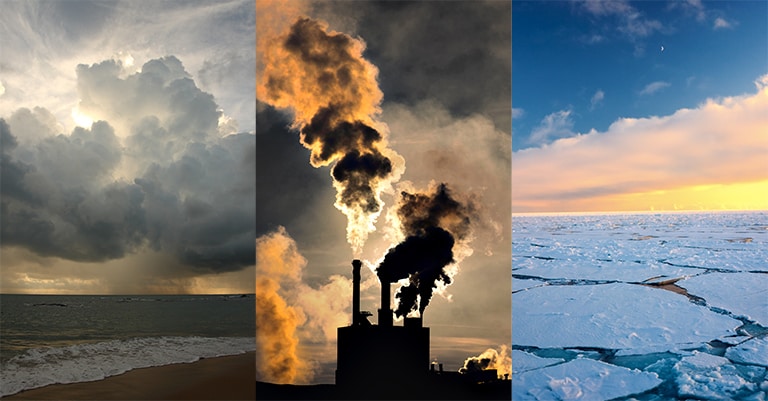Climate change is real
The latest IPCC report released today (Aug 9) shows the world will probably reach or exceed 1.5 degrees C of warming within the next two decades. Resulting in: increased heat, wildfires, droughts, flooding, coastal erosion, reduced agricultural yields, insect outbreaks, with impacts on health. This video mixes various commentaries on the report from today.
Rebecca Solnit’s response tries to be optimistic:
‘Climate change is a nightmare, and this summer’s floods, fires and extreme heat, from China to Siberia to British Columbia, are reminders that the problem is rapidly growing worse. Yet the striking thing about the IPCC report released earlier this month is not the bad news, which is not really news at all for those who have followed the science closely. It’s the clarity about possibilities, which I found hopeful . . .
Deliberate removal of carbon dioxide (CO2) from the atmosphere could reverse … some aspects of climate change . . . It will take heroic effort, unprecedented cooperation, and visionary commitment. It would mean making profound changes in our societies, economies, our ways of doing things. But it is possible to do. And we know how to do it.’ [1]
Yet the world we live in is not rational, is not usually ready for heroic efforts, unless immediately, before the eyes, threatened. Samuel Alexander warns, ‘The world we live in should not be treated as normal, and it should not be a sign of good health to become ‘well adjusted’ to a society that is casually practising ecocide, celebrating narcissism, institutionalising racism and assessing the value of all things according to the cold logic of profit maximisation.’[2]
‘Climate crisis has shifted the Earth’s axis, study shows: Massive melting of glaciers has tilted the planet’s rotation, showing the impact of human activities’.[3] As Tim Flannery says: ‘We’re in a different world now, a world where people are living with climate change consequences . . . People are shocked about climate change but they should be angry.’ [4] Barry Lopez was angry, but wrote, ‘I object to society’s complacency.’ [5]
Artists are working to bring home the truths of global warming.
John Akomfrah’s ‘Purple’ is a 2017 video installation investigating the interconnected effects of climate change on a global scale. ‘As the work unfolds, lush, cinematic shots of landscapes altered by climate change are cut together with archival footage, spoken word, and music. This bricolage style of remixing is distinctive to Akomfrah and fellow members of the Black Audio Film Collective. Described by the artist as ‘a person of colour’s response to the Anthropocene’.’[6]

[1] Rebecca Solnit, ‘The IPCC’s latest climate report is dire. But it also included some prospects for hope’, The Guardian, 13 Aug, 2021.
[2] Samuel Alexander, ‘Delusions of sanity’, Griffith Review 72: States of Mind, ed., Ashley Hay, May 2021.
[3] Damian Carrington, ‘Climate crisis . . .’ Guardian 23 April, 2021.
[4] John Pickrell, ‘Tim Flannery: people are shocked about climate change but they should be angry’, The Guardian, 21 March, 2019. And ‘Out on its own: Australia the only country to use climate funding to upgrade coal-fired plants.’
[5] Barry Lopez, introduction to American Geography, Radius Books, 2021.
[6] Shannon Lee, ‘These 10 Artists Are Making Urgent Work about the Environment’, 20 April 2020. https://www.artsy.net/



